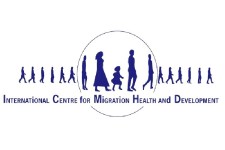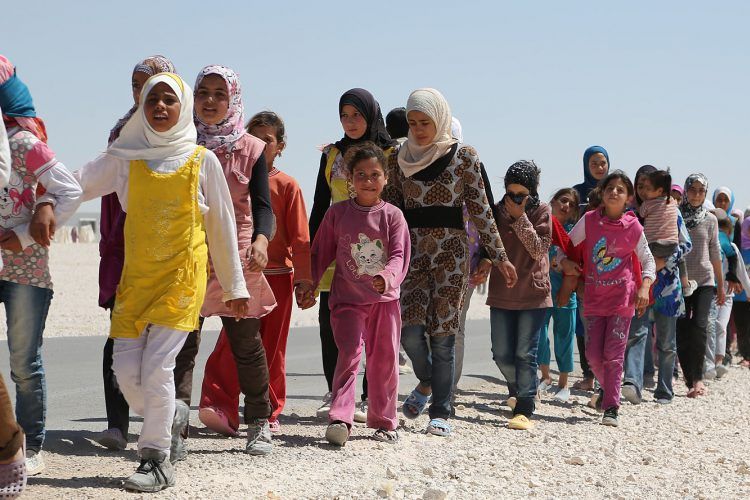ICMHD's work is guided by the principle that the right to health applies to all people, including migrants, refugees, and asylum seekers, and that in protecting the health of people on the move, the health and welfare of the larger society is also promoted and protected.
The International Centre for Migration, Health and Development is a Swiss-based non-profit institution established in 1995. Its mandate is to work on research, training and policy advocacy on population movement and health, and in doing so, support national governments, international agencies, NGOs, private sector groups and others working on issues related to migration, health and development.
ICMHD is a self-financing non-governmental organization created in 1995 in response to a recommendation by international bodies that met in Geneva to discuss emerging challenges in international public health, especially in the context of migration and how it affects the health of the people who move, the people they leave behind, and the people and the healthcare systems they come into contact with in transit and host countries.
ICMHD is dedicated to providing governments, UN agencies, other NGOs, and private sector groups with technical and advocacy support on population movement and health. It has been designated as a WHO Collaborating Centre and as an Implementing Partner by UNAIDS and UNFPA. It has Memorandums of Understanding with the Dasman Diabetes Institute in Kuwait, the Spallanzzani Research Hospital in Rome, the Asian Health Literacy Association, and Glasgow Caledonian University in the UK. ICMHD is represented in Albania, DRC, Cote d’Ivoire, Kuwait, Liberia, Canada, Spain, the UK and the USA.
ICMHD’s commitment to understanding and describing the dynamics of migration, health and development has prompted a strong investment in epidemiological and social research, situation assessments, monitoring and evaluation, training and education, and policy formulation and advocacy that takes into account the changing geopolitical nature of migration and its interaction with health and development.
Research
ICMHD’s research focuses on communicable and non-communicable health challenges and increasingly on the interaction between them. In the area of communicable diseases, it is working on emerging issues in the fields of HIV, hepatitis B and C, and TB. In the field of non-communicable diseases it is working on emerging issues in the fields of diabetes, reproductive health, maternal and child health, and psychosocial health and wellbeing. In terms of the interactions between communicable and non-communicable diseases, ICMHD is looking at the links between diabetes, TB, and hepatitis C. It is also looking at the barriers to vaccination and the effective use of primary health care in situations of population displacement and resettlement.
Situation Assessments
ICMHD undertakes assessments of health and social conditions in natural and man-made crisis situations where people are displaced. It has evaluated the link between access to healthcare services and social integration of migrants and refugees in Geneva, the health condition and needs of Kosovar refugees in Albania and Macedonia, the healthcare needs and response to tsunami survivors in Sri Lanka and the Maldives, HIV and viral hepatitis among migrants in Europe and refugees in Lebanon and Jordan, and diabetes and TB in Kuwait.
Training
As part of its commitment to institution strengthening, ICMHD develops training courses for Ministry of Health officials, UN personnel, peacekeeping personnel, military and police, humanitarian relief workers, and primary healthcare staff. Its training courses have covered issues such as preparing for sudden and massive influxes of migrants and refugees, sexual gender based violence in conflict and post-conflict situations, psychosocial needs of migrants and refugees and the humanitarian relief staff who work with them, HIV prevention and treatment, and diagnosis and treatment of viral hepatitis in migrant and refugee populations.
Policy Formulation and Advocacy
ICMHD formulates migration and health/welfare policy options based on real-time evidence and advocates for these policies on behalf of its stakeholders. It has worked with the Council of Europe, the Europe Centre for Disease Control, UNAIDS and WHO on policies related to issues such as screening and access to healthcare, the need for new responses to the threat of communicable and non-communicable disease challenges in sending, transit and receiving countries.



